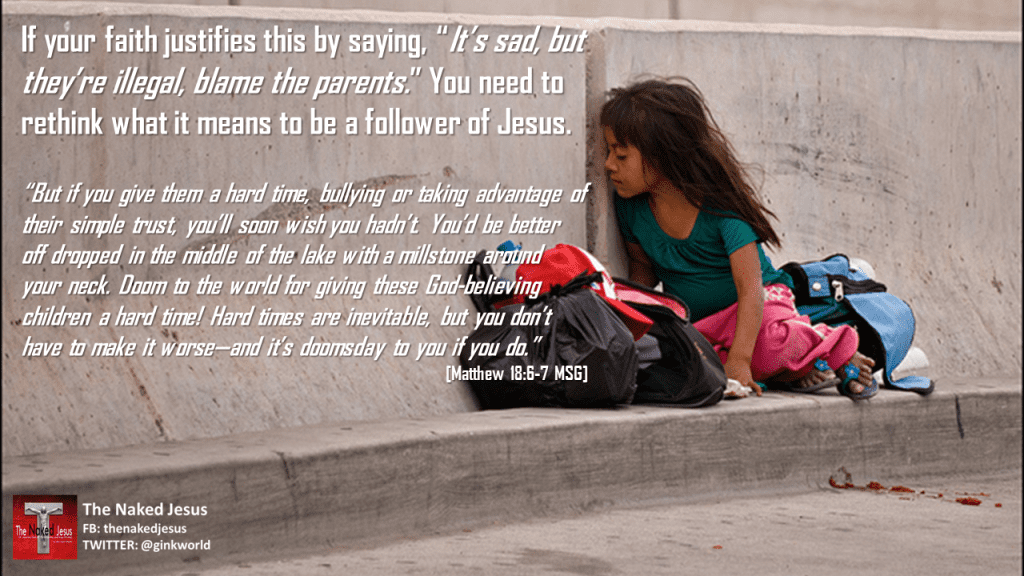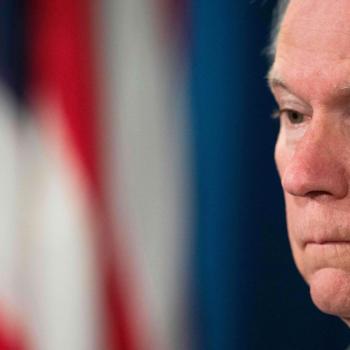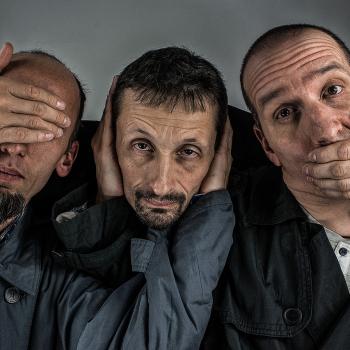 [NOTE] This is long, but so was the original article
[NOTE] This is long, but so was the original article
I don’t normally address other people’s articles because it’s always like driving a car designed by a Church Board. I was asked by a friend to address this one. Recently, January 19, 2016, Fr. Dwight Longenecker wrote an article on his Patheos blog entitled “Twelve Reasons Why Progressive Christianity Will Die Out.” Before I dive into the meat [the 12 reasons] of the article, let me say that I knew nothing of Fr. Longenecker before reading his article, and visiting his personal site; and I still don’t know a great deal about him. But what I found out, I admire. He seems to be a man who spent a number of years striving to figure out where he fit in this crazy place we call “church.” I can always admire, and respect, someone who spends time searching for a deeper meaning of their journey. In that, I have to say that I find it hard to reason why someone who took the time to search and find his place, he would beget others for doing the same. I will admit, I found his “catch line” rather interesting; The Catholic faith is a great adventure or it is nothing at all! Which kind of says to me, “We got it right, and everyone else got it wrong,” and I’m not even close to that in my faith journey. Let me address his criticism of the Progressive Conversation.
One of the things that kept jumping out at me was his use of the term “Historical Christianity.” When people use such buzzwords, without definition, my mind thinks, ‘You keep using the words, but I don’t think they mean what you think they mean.’ Whose historic Christianity? My historical tradition? Your historical tradition? Eastern Christianity? Western Christianity? The Christianity before, or after, it became the political religion of the State? Before, or after, the Crusades? Before, or after, the Inquisition? Before, or after, the Reformation? The term Historical Christianity is rather tenues, meaningless at best. I find it has no meaning, or it means what the reader, and author, wants it to mean – realizing both may have a different definition. So, using the term simply has no meaning without defining what you mean.
He writes, “Progressive Christians believe their religion is a historical accident of circumstances and people, that Jesus Christ is, at best, a divinely inspired teacher, that the Scriptures are flawed human documents influenced by paganism and that the church is a body of spiritually minded people who wish to bring peace and justice to all and make the world a better place.” Now, he does admit that he is painting Progressive Christianity with a “broad brush,” I tend to think he is painting with the wrong color palette because the Progressive Conversation is not even close to monolithic. But here is where he starts to switch terms, and most people would read right past it.
He switches Religion for Christianity. For many, this may not seem like a big deal, we need to keep in mind that Christianity and Religion are two very different things, yet related; Christianity is a subset of Religion. Like most times when people switch terms, this seems to flow with his dualistic view of Christianity. For him, Christianity is either “Protestant or Catholic” – or, as he claims – “progressive and historic.” He sees this as a battle that will never truly be resolved. He strives to give hope for those who hold a Historic Christian [which I tend to think is the Roman Catholic tradition, as defined by the Official Church] point of view by saying, “However, it is true to look at the dynamic of progressive Christianity and see that by the end of this century it will have either died out or ceased to be Christianity” I found this interesting, because we have a long way to go to reach the end of the century.
He assumes the Progressive Conversation desires to redefine Christianity, from the nebulous Historic Christianity he sees as “true Christianity.” In reality, nothing could be further from the truth. We have no desire to redefine anything, our desire to takeback, reclaim, Christianity to its Historical roots found in Jewish traditions, and early [post 300AD] Christian tradition and except the tensions that existed as Christianity was forming out of a diverse culture, and reclaim our faith with that culture in mind.
Another point I would like to address, before delving into his 12 reasons, is his use of the term “modernists” and “modernism.” This again falls into the category of using terms without definition, and simply using the tem out of context. I will give him the benefit of the doubt and simply say that he may be confused with terms. The Progressive Conversation is not a modernist conversation. We can, if one wishes, say that the Progressive Conversation stems from a Postmodern [some, myself included, would say Post-Postmodern] mindset.
Now, let me address his points.
His first point is, [and keeping in mind his using the terms Religion and Christianity interchangeably, though he shouldn’t] that Progressive Christians reject “supernaturalism” and we have simply become a conversation on “fighting for equal rights, making the world a better place, being kind to everyone and spirituality.” He does share a kind of definition of religion, as it relates to his first point. For him, religion, in this contest means, “is about an interchange with the other world. It is about salvation of souls, redemption of sin, heaven, hell damnation, the afterlife, angels and demons and all that stuff.” His assumption says, “Progressives don’t deal in all that,” yet, anyone in the Progressive Conversation will tell you that we wrestling with every day. We may not come to the same conclusions as he desires, but trust me, we wrestle with them on a regular basis. Besides all that, what is wrong with wanting a better world, being kinder to others, and seeking a meaningful spiritual faith journey?
Here again, he desires to have that dualism – you are either spiritual or you help others. This may work within his tradition, but those of us in the Progressive Conversation do not create a false dualism; we see the need for both, and we understand our faith journey can actively produce both.
His second point is that, “Progressive religion is essentially individualist and not communal.” All I can say at this point is that he is showing me that he has no idea what it means to be a Progressive Christian. For many of us, community is central. In fact, in my last book [The Naked Jesus; A journey out of Christianity and into Christ] I explain our view of Koinology, a theology of community – of common unity. We are not looking to join communities with likeminded people. We desire the diversity, the messiness, the confusion, the tension of community that forms around grace, love, compassion, forgiveness, and yes, Christ. We are not looking for our faith journey to be changed so we can walk were we desire. We seek a faith journey that will challenge us, scare us, move us, embrace us, and cause us to see the world in a different way.
His third point is, “Progressive Christianity is also subjective and sentimentalist.” My first reaction to this is, “Yeah, and why not!” If he took a poll of the people in his church he would find that everyone has a subjective view of their individual faith journey, everyone. Sure, we can say we believe in Christ, and all Christ did for us, but for that to have meaning it must be placed in our lives, in our journey, in our understanding of the world around us. So, yes our faith journey is subjective and sentimental. There is nothing wrong with our desire to “eschews doctrine and favors individual spirituality and sentimental responses to doctrines and moral issues.” Dogmatic and demanding orthodoxy is limited, and is unable to express how the Divine in working in our individual, and communal, lives.
His fourth point is that, “Progressive Christianity is historically revisionist.” He claims that we desire to “re-write history according to their prejudices.” His claim is not even close to the truth. You see, as a Progressive Christian I know that our history was written by those in power, and it left out some amazing fact that are important to how we view our faith journey. He claims that this causes us to cut off traditions. To some degree I would agree, because if we have a tradition for traditions sake, it should be changed.
His fifth point is, “Progressive Christianity is based on out of date Biblical scholarship.” This one totally made me laugh. If anything, Progressive Scholarship is deeper, richer, more complex, and refreshing. But, and he does it again and again, he is confusing “modern” scholarship with progressive scholarship. He writes, “The house of cards that is modernist Biblical scholarship is tumbling down and will continue to do so.” I would agree, but we are not looking at modern bible scholarship. Nor are we using old, historical scholarship either.
His sixth point is, “Progressive Christianity will die out because it makes no great demands for its devotees to be religious.” He is right on one point, we are not striving to be more religious, we are striving to become more like Christ. He focuses this point on not going to church, and claiming that missing church is a mortal sin. He strives to make an argument that we should go to church because we fear God, not because we love God and others.
His seventh point is, “The progressive himself does not really understand why anyone should be religious.” I have no desire to call anyone to be religious, I have a strong desire to call people, and myself, to live as Christ lived.
His eight point is, “Progressives allow for moral degeneracy and that saps the strength out of real religion.” Now we are getting to the meat of his complaint against Progressive Christianity, we reject the idea that “religions demand moral purity.” Whenever I hear people say this I always think they are complaining that we are ‘watering down their kool-aide.’ In reading this point I keep thinking how he is confusing Christian traditions. He says that “The modernist sees religion not as self denial but self fulfillment” never once realizing that the Progressive Conversation is not even close to that reality. We have no desire to be part of a consumer-based church, or faith tradition – we are seeking change, we are seeking to deny self, we are seeking to place our lives into the messy, dirty lives of the marginalized and hurting because we know our lives are messy and dirty. But this rant against the Progressive Conversation centers more same-sex marriage and a women’s right to choose. In fact, his closing line gives us a focus on his agenda, “It’s not rocket science to conclude that a population who stop having babies will soon die out.”
His ninth point is, “The Church of the South is on the rise.” What this means is the Church in Africa, Asia and South America are on the rise. It is, but it’s being fed with American Corporate Christianity. Many conservative Christian groups have sent over people to change legislation, fund churches that support their brand of Christianity, and actually cause more harm to the culture, to gays, to those who don’t fit into their idea of what a Christian should be. The “Church of the South” is on the rise with people who hold a theology that harms the marginalized. While I am certain some readers fall into the Conservative Conversation, and that is cool. I am also certain that none would call for the death or imprisonment of people who have a different theological view.
His tenth point is, “Progressives are dull and respectable.” All I can say is that he has never seen Progressive Christianity in practice. Besides, when did respectable become a bad thing? His line that, “Respectability is the kiss of death to real religion, and bourgeois radicalism is really the pits” sends me wondering, ‘what the heck he is thinking?’ Christ respected people, he didn’t hold with the religious leaders of his day, but he did respect. Jesus was also very radical, I would suggest reading the Collective Narrative with an open mind, and you will find that Jesus was a very radical individual.
His eleventh point is, “The Historic Christians are now the radicals.” I smiled when I read this because he just finished saying that being a radical was a bad thing. Historical Christianity is not even close to being radical, claiming it is seems to say that being a radical is a good thing. He writes, “When the whole world becomes liberal it is the conservative who is the radical.” No, that’s not only bad logic, it’s funny. This whole point is just so funny, and so twisted.
His twelfth, and last point, is, “All Are Welcome…to leave.” In this point he talks about boundaries. In reading this point all I can ask is, what boundaries? He writes, “The irony is that their final, infallible dogma for progressives is that “all are welcome”. They never stop to realize that a religion can only be a religion if it has boundaries.” I would agree that religion has boundaries, and that is one of the biggest problems those who demand religion have. His idea is that because we are open to all people – ALL PEOPLE – we are doomed to fail. He ignores the reality that people are seeking to know the Divine, they are starving for an understanding of how the Divine will change them, how following the teachings of Jesus will make them something different. Religion will never do that, only coming to see the power, grace, love, compassion, and forgiveness of the Divine can.
In general, the Progressive Conversation within Christianity is not dying. In time it will, as all things do. I think it is rather interesting that he gives a time frame at the end of the century. Given that he is talking about sometime in the next 85 years, yeah it is a safe bet. We have to remember though, his undefined Historical Christianity died about 50 years ago.











